The relation between what we see and what we know is never settled. Each evening we see the sun set.
JOHN BERGERBy contrast, a woman’s presence… defines what can and cannot be done to her.
More John Berger Quotes
-







-





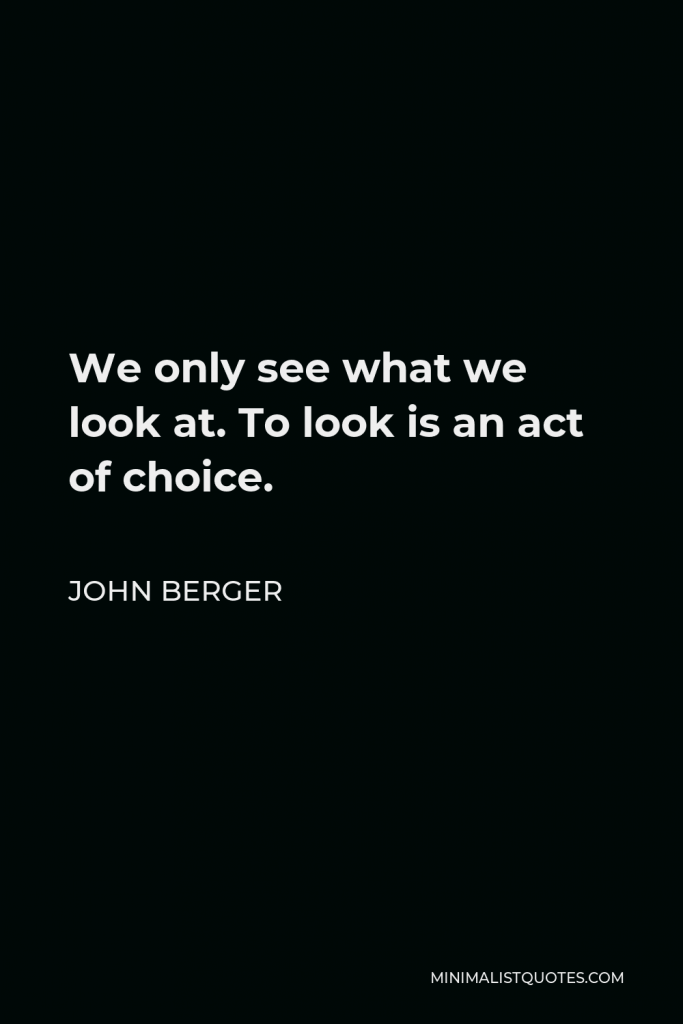

We only see what we look at. To look is an act of choice.
JOHN BERGER -







Photography, because it stops the flow of life, is always flirting with death.
JOHN BERGER -







All weddings are similar, but every marriage is different.
JOHN BERGER -





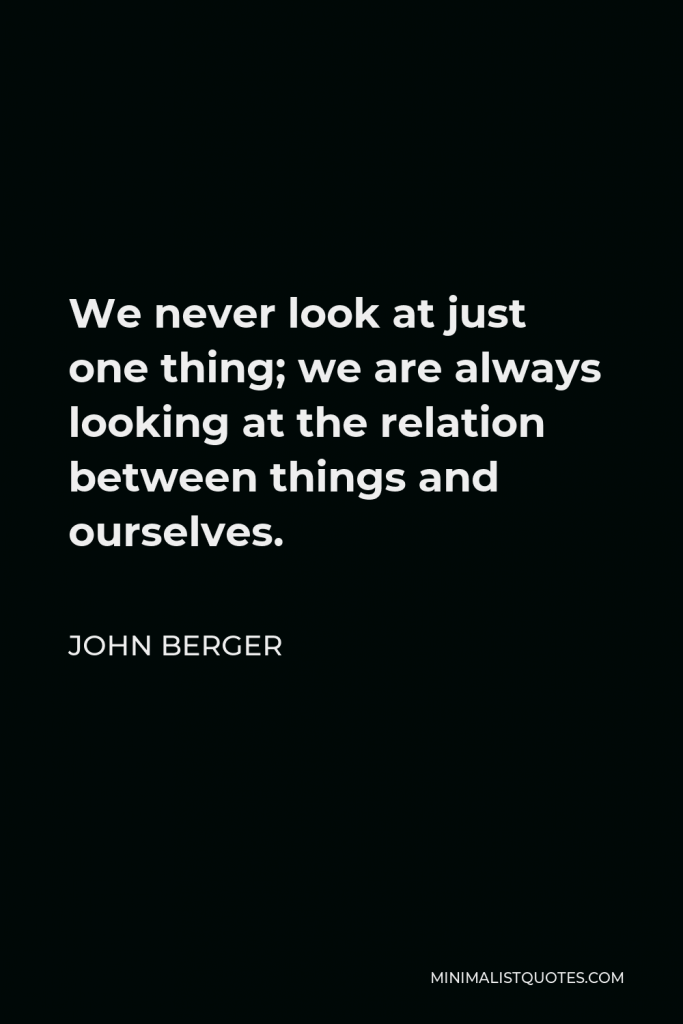

We never look at just one thing; we are always looking at the relation between things and ourselves.
JOHN BERGER -







Picasso drawings are like that… the Rembrandts are like that. The artist who most often did that was Van Gogh.
JOHN BERGER -







The heart of Paris is like nothing so much as the unending interior of a house.
JOHN BERGER -







For the Cro-Magnons, space is a metaphysical arena of continually intermittent appearances and disappearances.
JOHN BERGER -







The time of a cigarette is a parenthesis, and if it is shared, you are both in that parenthesis. Its like a proscenium arch for a dialogue.
JOHN BERGER -





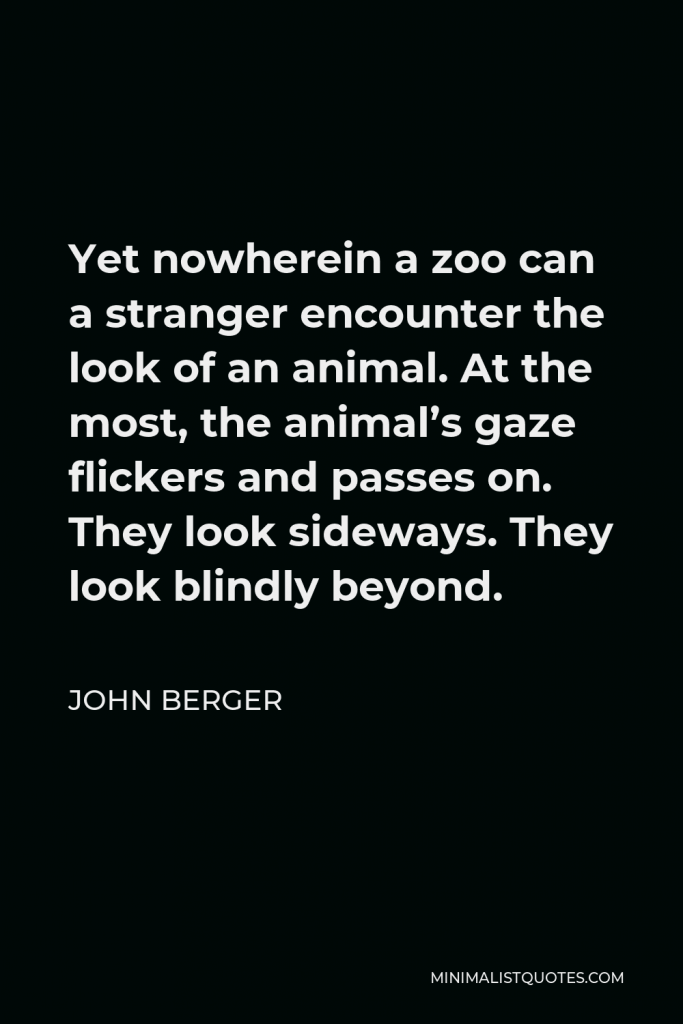

Yet nowherein a zoo can a stranger encounter the look of an animal. At the most, the animal’s gaze flickers and passes on. They look sideways. They look blindly beyond.
JOHN BERGER -





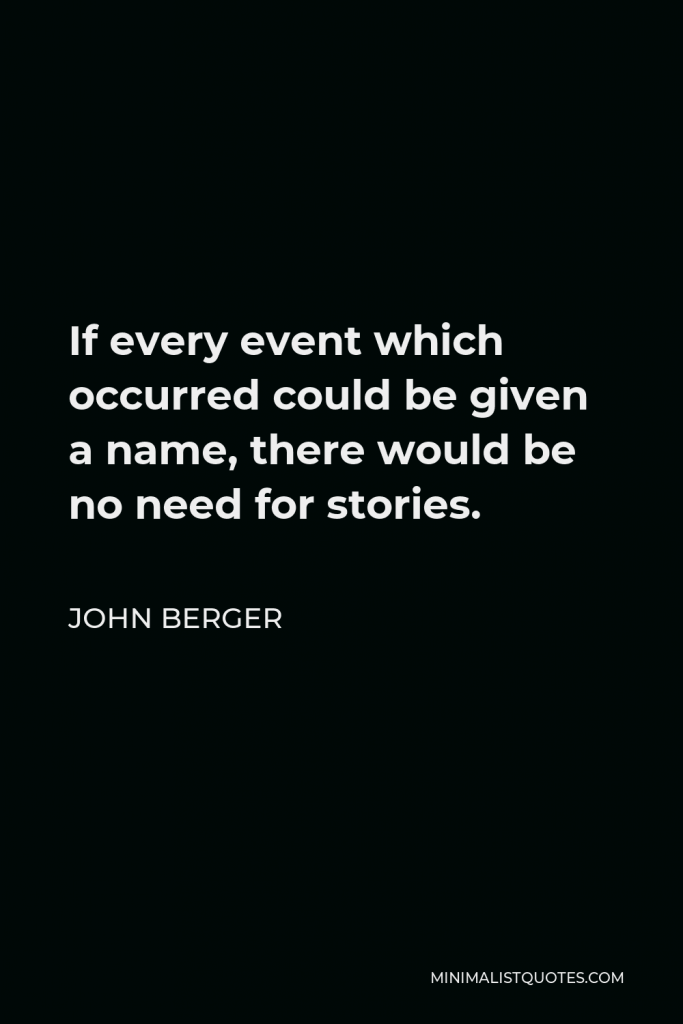

If every event which occurred could be given a name, there would be no need for stories.
JOHN BERGER -





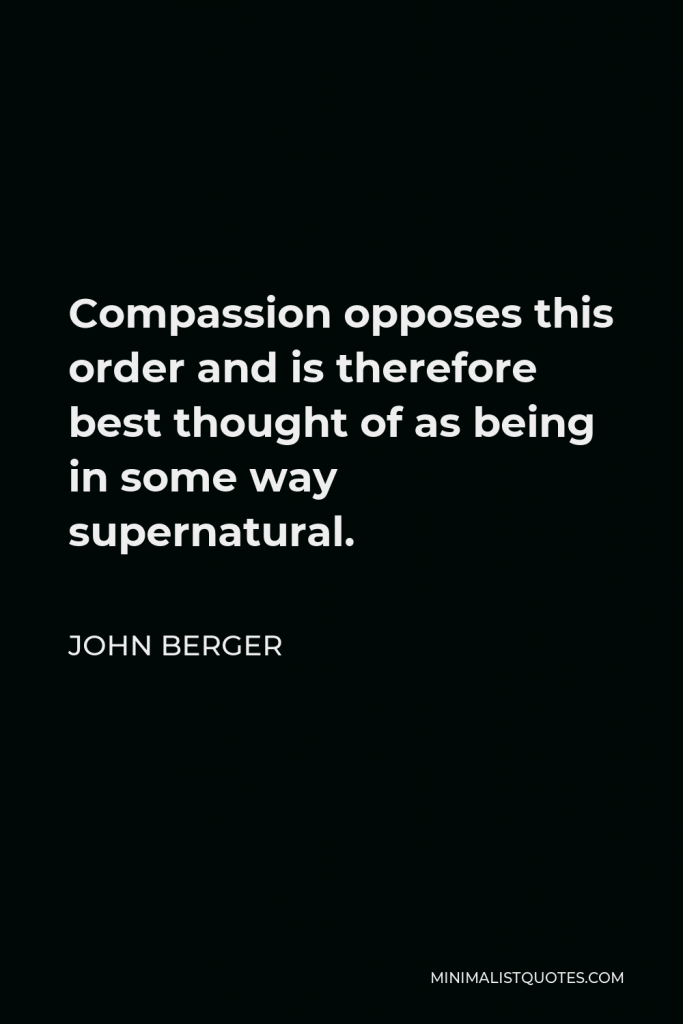

Compassion opposes this order and is therefore best thought of as being in some way supernatural.
JOHN BERGER -







Those who first invented and then named the constellations were storytellers.
JOHN BERGER -







A man’s presence suggests what he is capable of doing to you or for you.
JOHN BERGER -







One can say of language that it is potentially the only human home, the only dwelling place that cannot be hostile to man.
JOHN BERGER -





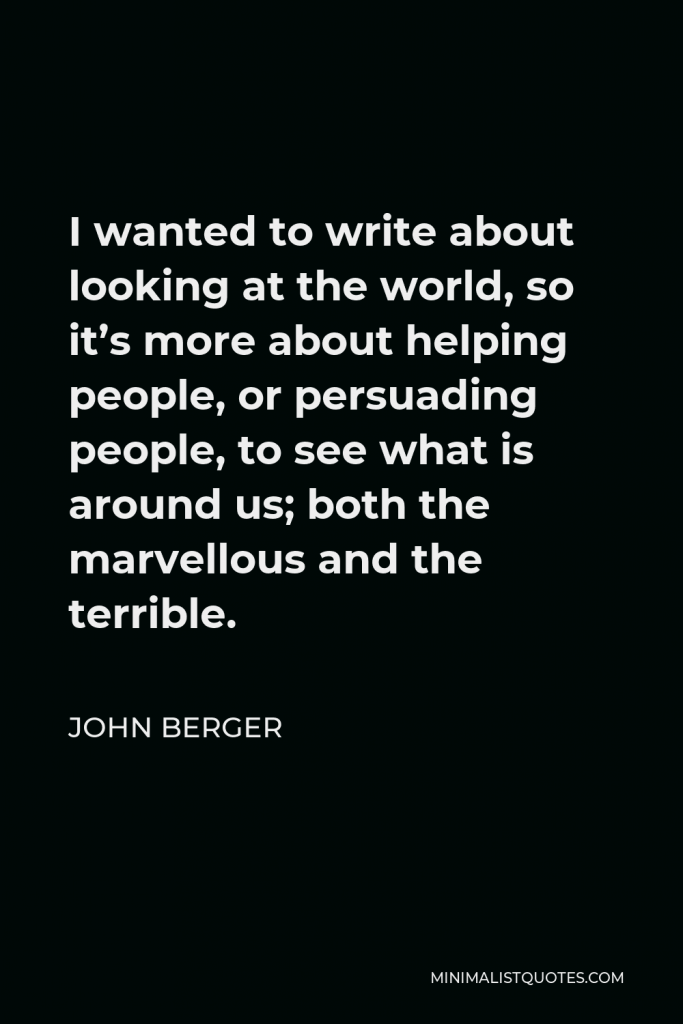

I wanted to write about looking at the world, so it’s more about helping people, or persuading people, to see what is around us; both the marvellous and the terrible.
JOHN BERGER







